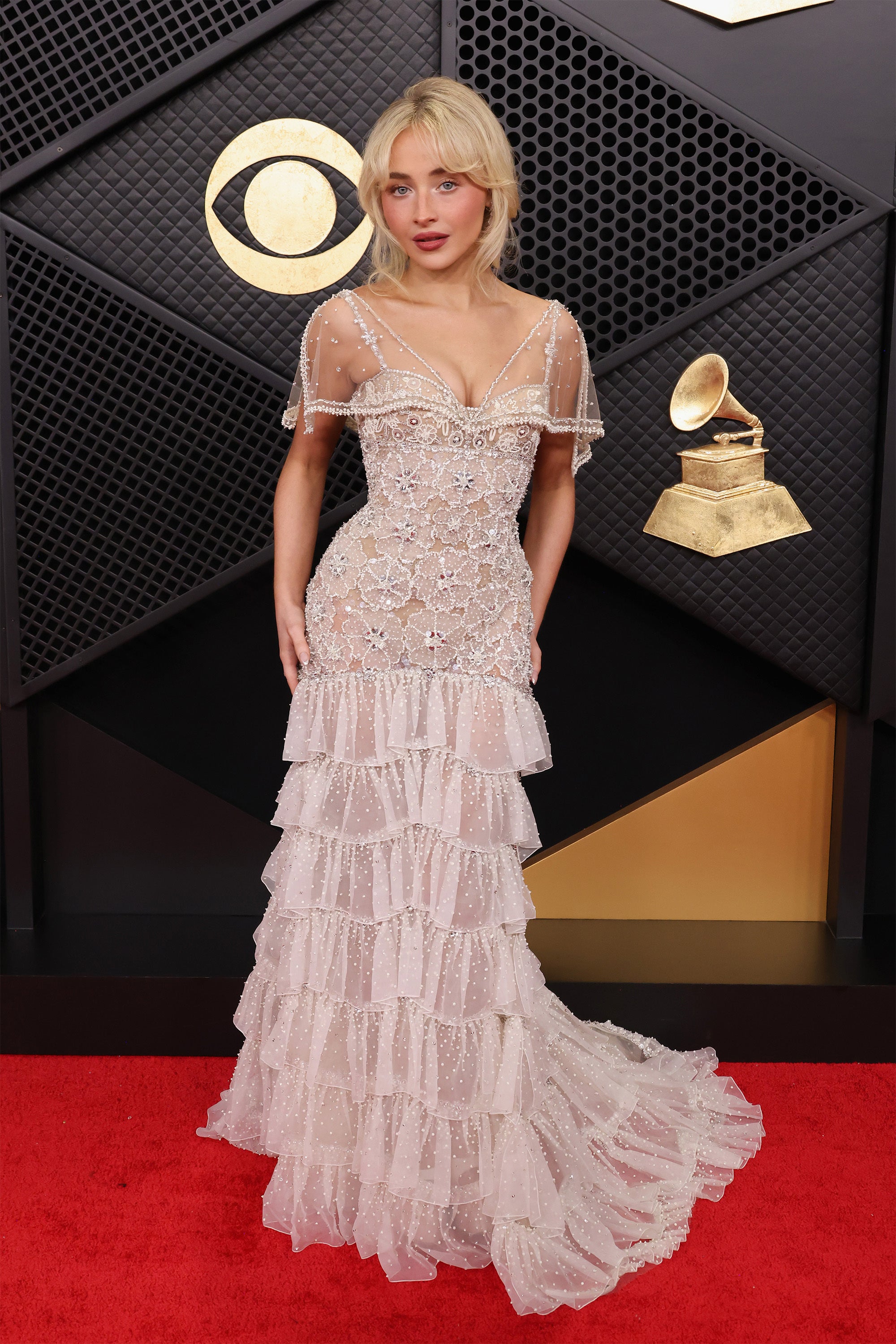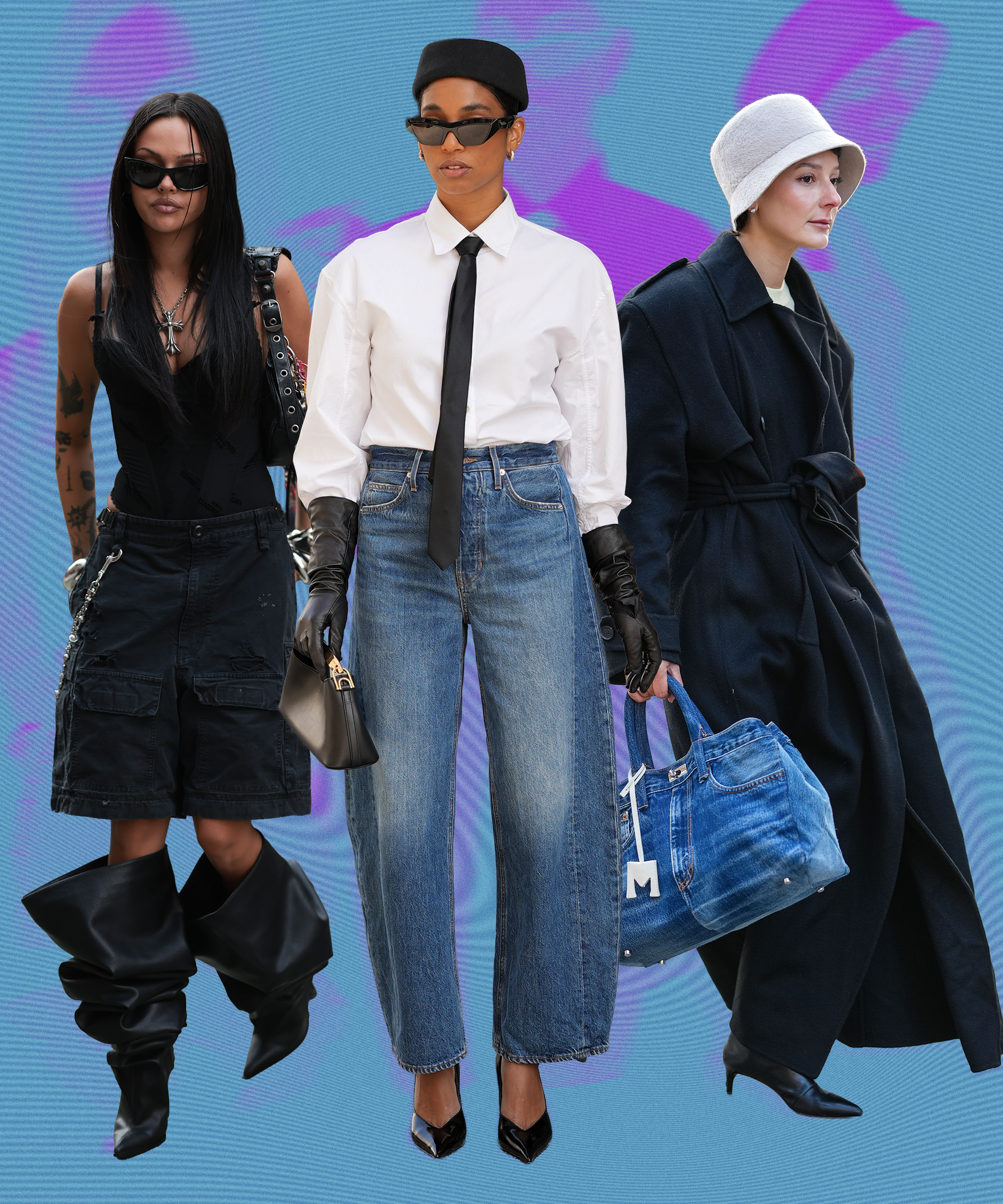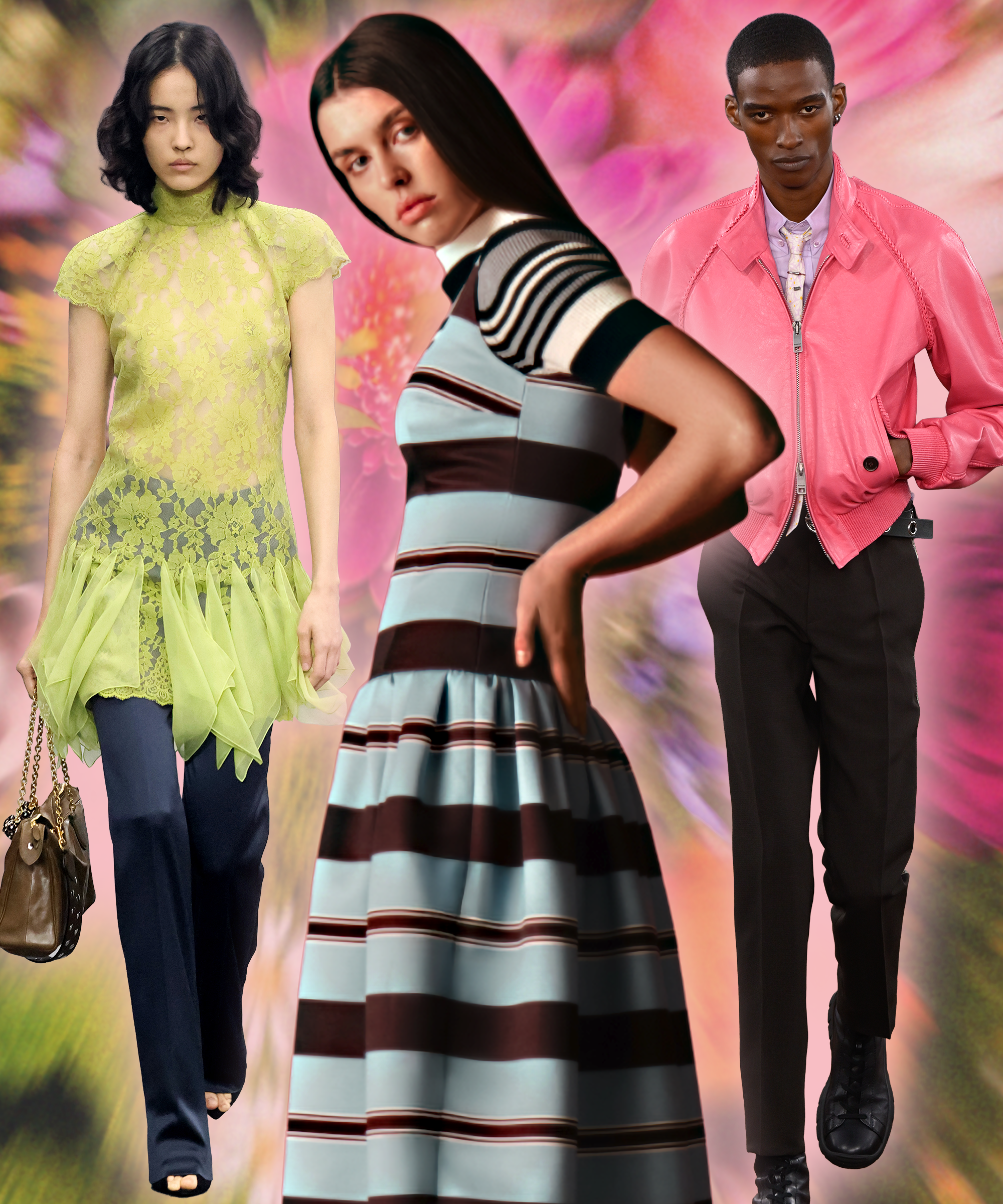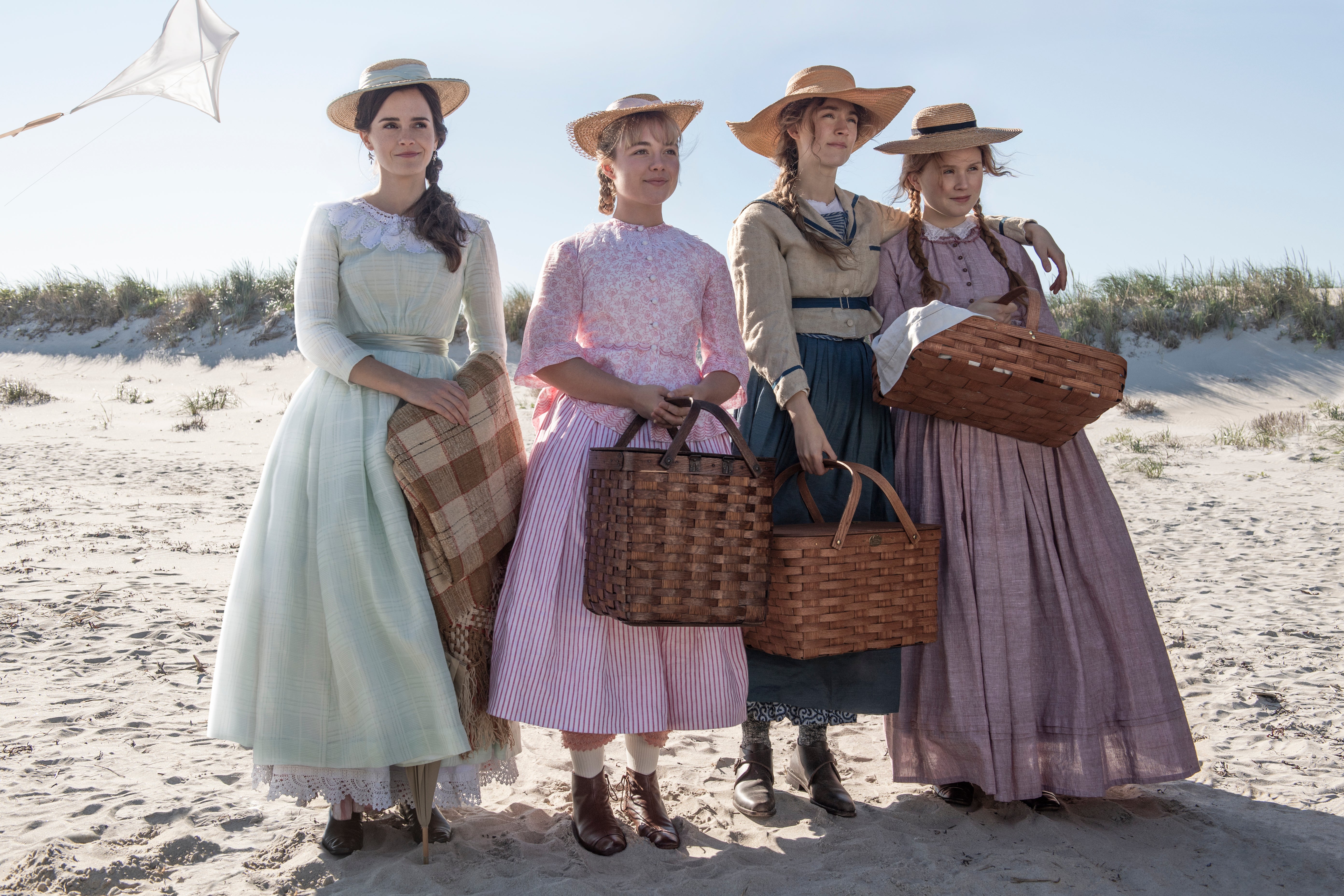
Welcome to #r29movieclub. We are taking “home theater” to a whole new level: Every Thursday at 5 p.m. ET, R29 is hosting a live rewatch of a beloved women-driven film. Join us!
Update: Little Women, the film based on Louisa May Alcott’s famous novel of the same name, was nominated for six Oscars last season, including Best Picture, Best Adapted Screenplay, Best Actress by Saoirse Ronan, and Best Costume Design, which Jacqueline Durran took home an Academy Award for in February 2020.
This story was originally published on December 16, 2019.
Greta Gerwig’s remake of Little Women is shaping up to be one of the most memorable fashion moments of the year. And the woman responsible for bringing the aesthetic to fruition is none other than veteran costume designer Jacqueline Durran — the brains behind that green Atonement dress, among other iconic film moments. But while one dress can stir up a lot of excitement, no one, not even Durran, could have expected just how relevant the clothing in Little Women would be.
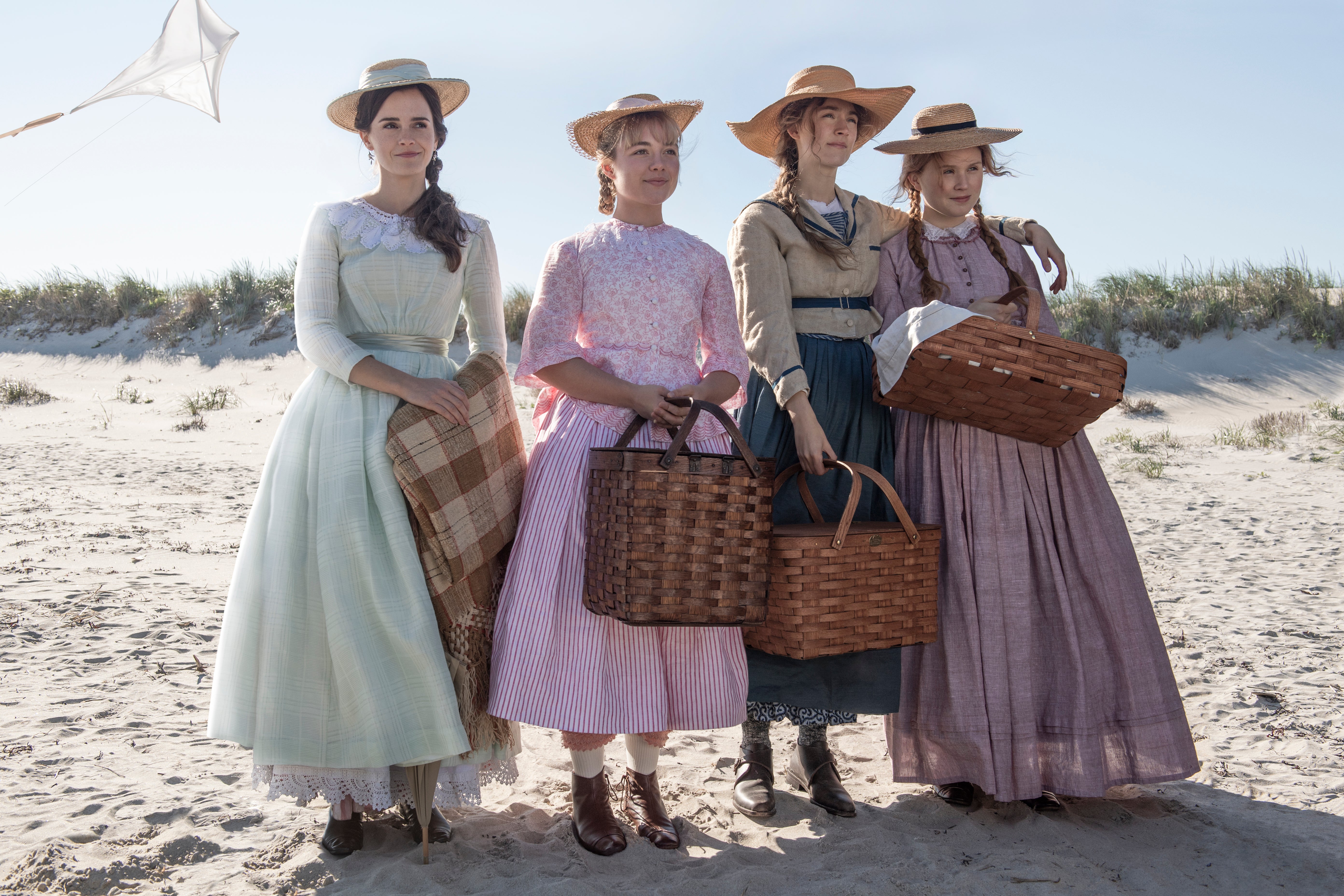
“I’ve been asked about prairie dressing, but I didn’t really realize that it was a thing,” Durran said over the phone, which was surprising — the prairie trend has become nearly inescapable.
The film premieres in just over a week and is full of gorgeous clothing that is not all that different from what we saw on recent runways. The cast wore eyelet collars, long hemlines, lace-up boots, and basket bags in America; petticoats, corsets, lace gloves, and satin heels in France. Almost every sought-after trend from 2019 shows up on-screen in Little Women. Hell, even Timothée Chalamet’s tailored suiting (which Durran says was also worn by Saiorse Ronan’s character) would fit in perfectly with today’s trendiest aesthetic.
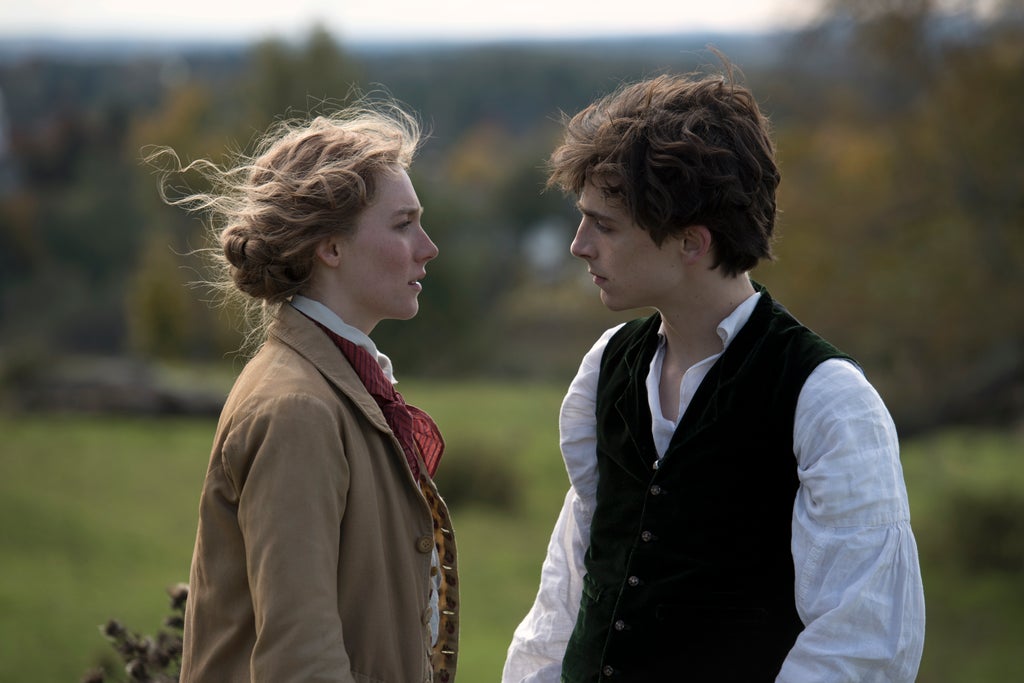
Whereas nearly every brand on the market is embracing prairie dressing in some form or another, two stand out as the leaders of the movement. Batsheva Hay, founder and creative director of Batsheva, has been doling out doily collars and whipping up long hems since she started her brand in 2015. According to her website, she designs modest dresses for women in order to “reject antiquated notions of womanhood.” It might seem like a contradiction that covering up more with vintage-inspired silhouettes could function as a rejection of traditional femininity, but as The New Yorker wrote last year, Batsheva “is coveted by an artsy set of women who appreciate the subversive allure of designs that might appear comically conservative to some.” And as such, Batsheva was an overnight success. The Vampire’s Wife, led by designer Susie Cave, takes a similar, if not slightly more luxury design approach to the trend, and in doing so, proves that this aesthetic reaches even the highest end of the fashion spectrum.
It’s not a coincidence that prairie-style dressing made a comeback around the same time that Little Women’s remake was announced. Rather, both are small pieces in the larger 1860-turned-2019 zeitgeist. Despite the obvious differences between the eras (like, you know, technology), we’re living in a society that’s not entirely different: women are still fighting to not be objectified; we’re expected to act, or not act a certain way; and we’re held, in general, to different standards than men. Between wage gaps, sexual harassment, and the persistent pressure to just get married already, it’s no wonder that Little Women has stayed relevant this long. And like us, Jo, Meg, Beth, and Amy dress in response to what’s happening around them.
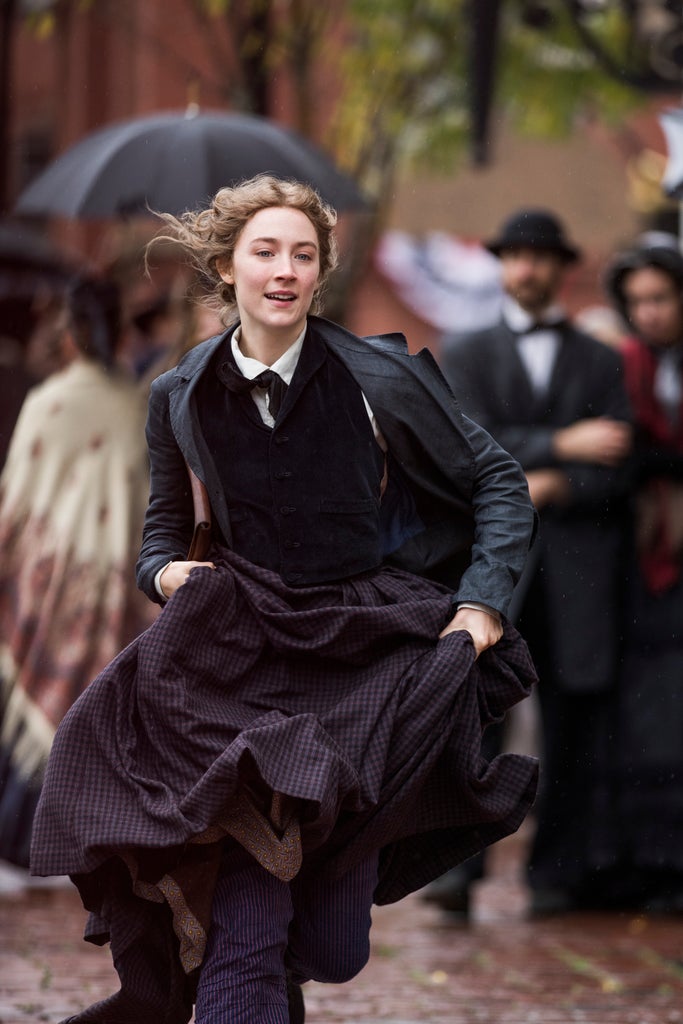
Even as the characters in Little Women grow up and move away from the archetypal “prairie” aesthetic, their sense of style still manages to mimic trends that are relevant today. Jo moves more towards androgyny — at least as much as a woman could in the 1860s — with Durran sprinkling hints of suiting throughout her New York wardrobe and removing the ultra-feminine aspects of her younger costumes. “When Jo moves away from home, she’s trying to look a bit more professional and more grown-up. She starts dressing for the city.” And who amongst us hasn’t?
The same goes for Amy, who moves to Europe and adopts another one of 2019’s most talked-about trends: Renaissance. In contrast to the prairie trend which is rooted in America, renaissance dressing is inherently European. Think Marie Antoinette, but in Amy’s case, far less extravagant. Thom Browne, Charlotte Knowles London, Brock Collection — the romantic collections of September Fashion Week would’ve fit seamlessly with Durran’s designs for the world-traveling March sister.
“In the end,” Durran said, “I think I’m lucky if what I do works; if it chimes with the mood of the time.” But once you see Little Women on December 25th, we think you’ll agree that luck had absolutely nothing to do with it.
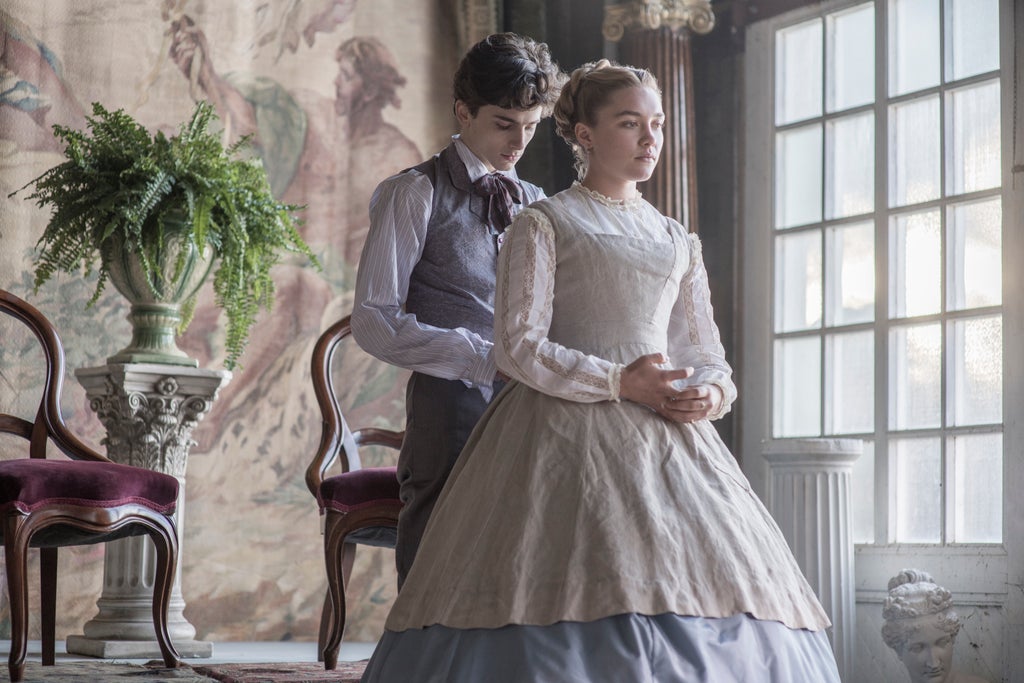
Related Content:
Like what you see? How about some more R29 goodness, right here?
The Best Looks From Little Women’s Red Carpet


